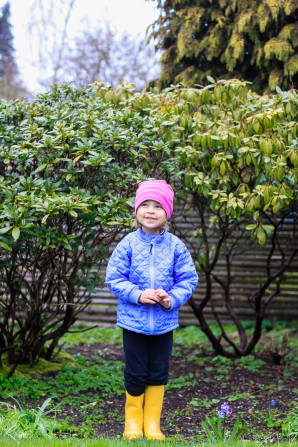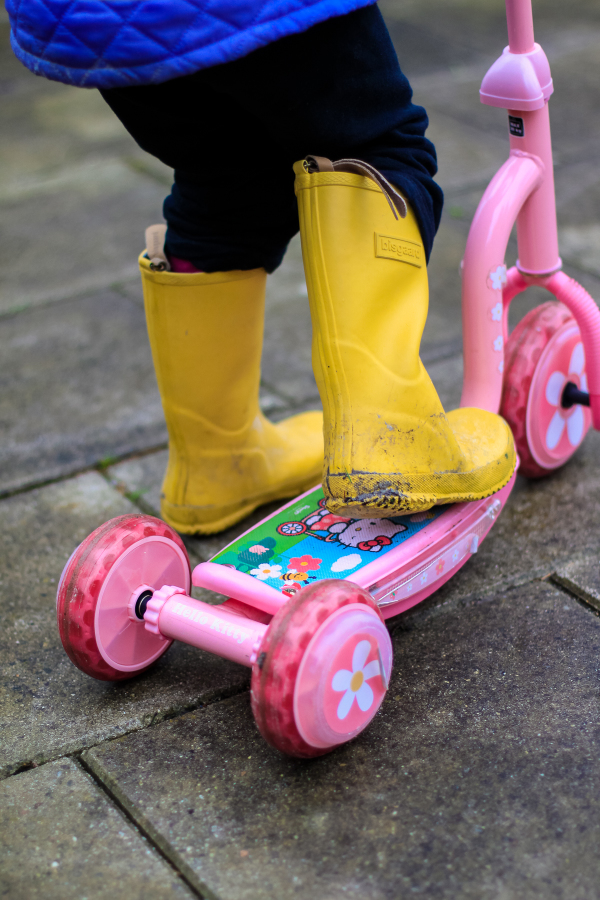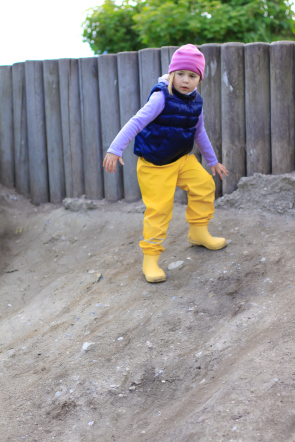“But she doesn’t have a speech impediment,” I replied.
I had come to pick up my daughter one day, about four months into our forest school experiment. Not recognizing one of the teachers (not that uncommon here as teachers are often on a cluster type arrangement and also there is a high rate of substitute teachers), I had introduced myself as one of the mom’s.


“I know,” the teacher said, “I’ve been working with your daughter for a couple of months now.” I wasn’t sure what exactly that meant but after a bit of back and forth, she clarified that she wasn’t a teacher per se but a speech therapist. Hence the moment of confusion.
If my daughter really had a speech impediment, I’d like to think that I was the type of parent to put any resources available to her disposal, as opposed to shying away from the diagnosis in a defensive posture. But regardless of what I may or may not have thought of myself, I was definitely starting to appear the latter. I knew my daughter, and at home, she chatted away a mile a minute without any hint of impediment. So I said again, “But my daughter doesn’t have a speech impediment.”
“Of course she does, she doesn’t speak Danish, ” the therapist clarified. My immediate thought was since when does not speaking a language qualify as impediment – we had only been there for four months after all. But once I set aside my instinctual reaction of taking offense, and heard out the therapist, I saw that maybe there was some logic to this after all.


Because my daughter didn’t speak Danish coming into the school, and was wholly unfamiliar with many of the difficult sounds of the Danish language (not to mention the vocabulary writ large), the therapist was there to work with her to break down the language in to sounds she could digest…to work on diction… on pronunciation… and to increase her understanding of what individual words meant through the use of pictures and short books. In addition, the therapist helped to clarify for my daughter that her English-speaking life was at home, while her Danish-speaking life was at school. What started out as therapy for speech, ended up also being therapy for figuring out the cultural confusion that my daughter was going through, which in retrospect, we probably didn’t address enough at home.
The school had arranged for the therapist for her and another little girl, who was Danish and had a few enunciation issues, and that time aside with her actually gave my daughter the opportunity to have her first real Danish friend. And they’re still friends to this day. The program allowed for them both to have 10 hours a week of therapy together, and it continued for about a month or two after I had met the therapist. “Your daughter’s impediment is nearly gone!” the therapist cheerfully informed me.
At the time, I wasn’t sure what to make of all this – especially since this whole thing had been arranged without my knowledge. In the US, surely this would involve about 14 pieces of paper to sign, right ? And fees! Shouldn’t I be owing them money for this?

With a little time, I learned to consider this as one of the greatest things the school was able to do for her. Now when people meet my daughter, they usually don’t pick up on the fact that she is not actually Danish until they meet me. Her language is nearly flawless – not that I’m a good judge of that. It’s what people tell me, and if you’ve been to Denmark you know that people aren’t the kind to blow smoke and rainbows out for you to flatter. She’s completely integrated, she’s successfully bilingual, and apart from our usual monthly school fee, we didn’t pay a single extra kroner for that. Part of me does still wish that they had kept me in the loop – not because I would have said no, but because I’m her mother. I would have wanted to know.
I wanted to share this today to shed a little light on a few differences but also to talk about one of the most helpful resources we came across, without even knowing it. If you do have a child in a Danish school that doesn’t yet speak the language, ask about the speech therapy option in your school or your commune. I don’t know if all schools are as proactive about organizing it. But in the end, it was one of the most important factors in bringing my daughter inside from the metaphorical outside, which can be a lonely place, at three or at any other age.














